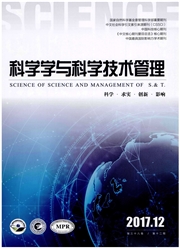

 中文摘要:
中文摘要:
过去的30年是中国历史上变革非常剧烈的时期,这些变革极大地影响了人们的文化价值观。对中国企业来说。年长管理者与他们年轻的下属之间有着差异极大的价值观。从14个文化维度研究我国年长和年轻管理者的文化差异,每个维度都从三个层面来测量:文化现状、向往的价值观、期待的价值观。调查了97位年长管理者和236位年轻经理人发现.在大部分维度里的“文化现状”这个层面上,年长和年轻管理者没有显著的认知差异,但他们在其中的7个维度中“向往的价值观”扣“期待的价值观”这两个层面上却有着显著差异。这些结果表明.中国企业中存在着显著的由年龄代沟所引起的文化维度和文化层面方面的差异,而年轻一代中国企业管理者的价值观则预示了中国企业文化在未来可能的发展方向。
 英文摘要:
英文摘要:
The past three decades have been periods in Chinese history. However, the reform As a result, those senior Chinese managers tend broadly brought to hold recognized as one of the most significant reformatory severe disturbance and confusion to Chinese culture. very much different values compared with their subordinates. This research is trying to study the cultural dissonance of senior versus junior Chinese managers from 14 culture dimensions. Each dimension was measured from three levels: "it is" (practices), "should be"(desirable values), and "wish to be" (desired values). 97 senior managers and 236 junior managers answered the questionnaire. We found that for most dimensions there were no significant cognitive differences between the senior and junior managers at the "it is" level. However, there were significant differences in 7 dimensions at "should be" level and "wish to be" level. The results suggest that Chinese manages should be treated differently in terms of culture dimensions and levels due to generation gap, and indicate possible future change direction of Chinese culture.
 同期刊论文项目
同期刊论文项目
 同项目期刊论文
同项目期刊论文
 Optimal Inventory and Dynamic Admission Polices for a Retailer of Seasonal Products with Affiliate P
Optimal Inventory and Dynamic Admission Polices for a Retailer of Seasonal Products with Affiliate P A Real-time Decision Rule for an Inventory System with Committed Service Time and Partial Backorders
A Real-time Decision Rule for an Inventory System with Committed Service Time and Partial Backorders The Influence of User Generated Content on Traveler Behavior: An Empirical Investigation on the Effe
The Influence of User Generated Content on Traveler Behavior: An Empirical Investigation on the Effe The Impact of E-Word-of-Mouth on the Online Popularity of Restaurants: A Comparison of Consumer Revi
The Impact of E-Word-of-Mouth on the Online Popularity of Restaurants: A Comparison of Consumer Revi Single-Period Two-Product Assemble-to-Order Systems with a Common Component and Uncertain Demand Pat
Single-Period Two-Product Assemble-to-Order Systems with a Common Component and Uncertain Demand Pat First Step in Social Media - Measuring the Influence of Online Management Responses on Customer Sati
First Step in Social Media - Measuring the Influence of Online Management Responses on Customer Sati Determinants of Customer Satisfaction in the Hotel Industry: An Application of Online Review Analysi
Determinants of Customer Satisfaction in the Hotel Industry: An Application of Online Review Analysi Can me-too products prevail? Performance of new product development and sources of idea generation i
Can me-too products prevail? Performance of new product development and sources of idea generation i Combining Social Network and Semantic Concept Analysis for Personalized Academic Researcher Recommen
Combining Social Network and Semantic Concept Analysis for Personalized Academic Researcher Recommen Discovering Target Groups in Social Networking Sites: An Effective Method for Maximizing Joint Influ
Discovering Target Groups in Social Networking Sites: An Effective Method for Maximizing Joint Influ Cooperative goals, leader people and productivity values: Their contribution to top management teams
Cooperative goals, leader people and productivity values: Their contribution to top management teams 期刊信息
期刊信息
